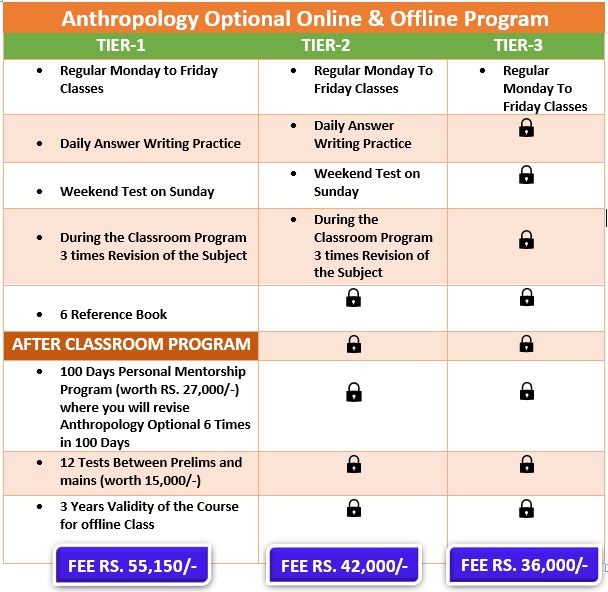Tips for Answering Ethics Case Studies in UPSC Mains
Tips for Answering Ethics Case Studies in UPSC Mains
-
Author : Vijetha IAS
-
Date : {{ formatDate("Fri Jul 12 2024 17:22:22 GMT+0530 (India Standard Time)") }}
-
Category : Daily New,

Tips for Answering Ethics Case Studies in UPSC Mains
The Ethics, Integrity, and Aptitude paper (General Studies Paper IV) in the UPSC Mains examination tests a candidate's ethical competence, integrity, and problem-solving abilities through various case studies. Answering these case studies effectively requires a clear understanding of ethical principles, a structured approach, and the ability to provide balanced and rational solutions. In this blog post, we will discuss essential tips for answering ethics case studies in UPSC Mains, and how Vijetha IAS Academy and Kishore sir Anthropology can aid in your preparation.
Understanding the Nature of Ethics Case Studies
Ethics case studies in UPSC Mains typically present real-life scenarios that involve ethical dilemmas. Candidates are expected to:
- Identify the Ethical Issues: Recognize the moral conflicts and ethical principles involved.
- Analyze the Situation: Evaluate the context, stakeholders, and possible consequences of different actions.
- Provide Solutions: Suggest ethical, practical, and balanced solutions to resolve the issues.
Tips for Answering Ethics Case Studies
1. Understand Ethical Principles and Theories
A solid grasp of ethical principles and theories is crucial for analyzing case studies:
- Utilitarianism: Focuses on the greatest good for the greatest number.
- Deontology: Emphasizes duty and adherence to rules.
- Virtue Ethics: Concentrates on the character and virtues of individuals.
- Justice and Fairness: Considers fairness in the distribution of benefits and burdens.
2. Structure Your Answer
A well-structured answer is key to effectively communicating your analysis and solutions:
- Introduction: Briefly summarize the case study and highlight the main ethical issues.
- Body:
- Identification of Stakeholders: Identify all relevant stakeholders and their interests.
- Ethical Analysis: Discuss the ethical principles and theories applicable to the case.
- Options and Consequences: Present different courses of action and their potential outcomes.
- Conclusion: Provide a balanced and reasoned solution, justifying your choice based on ethical principles.
3. Identify and Prioritize Stakeholders
Understanding the perspectives of different stakeholders is crucial:
- Primary Stakeholders: Directly affected individuals or groups.
- Secondary Stakeholders: Indirectly affected individuals or groups.
- Prioritization: Evaluate the impact on each stakeholder and prioritize their interests based on ethical considerations.
4. Balance Ethical and Practical Considerations
Your solutions should balance ethical principles with practical considerations:
- Feasibility: Ensure that your solutions are practical and feasible.
- Legality: Adhere to legal and regulatory frameworks.
- Ethical Integrity: Maintain high ethical standards and integrity in your solutions.
5. Use Real-Life Examples
Incorporate real-life examples to substantiate your analysis and solutions:
- Historical Cases: Reference historical ethical dilemmas and their resolutions.
- Current Events: Relate to current events and how similar issues have been addressed.
6. Practice Regularly
Regular practice is essential to develop proficiency in answering ethics case studies:
- Mock Tests: Take regular mock tests to simulate exam conditions.
- Peer Discussions: Engage in discussions with peers to gain different perspectives.
- Feedback: Seek feedback from mentors and peers to improve your answers.
7. Stay Updated with Current Affairs
Staying updated with current affairs helps in relating case studies to real-world scenarios:
- News Analysis: Regularly analyze news and current events from an ethical perspective.
- Case Study Examples: Collect examples of ethical dilemmas from news articles for practice.
How Vijetha IAS Academy Can Help
Vijetha IAS Academy provides comprehensive support and guidance for UPSC aspirants, especially in tackling ethics case studies. Here’s how we can assist you:
- Expert Faculty: Our experienced faculty, including Kishore sir Anthropology, provide personalized guidance and support, helping you understand ethical principles and their application.
- Structured Study Material: We offer meticulously curated study material that covers the entire syllabus, including ethics, integrity, and aptitude.
- Regular Assessments: Our regular tests and assessments help you track your progress, identify areas for improvement, and adjust your study plan accordingly.
- Current Affairs Coverage: We provide comprehensive coverage of current affairs, ensuring that you stay updated with the latest events.
- Practice Sessions: We conduct practice sessions on ethics case studies, helping you develop a structured approach to answering them.
Practical Tips from Kishore Sir Anthropology
Kishore sir Anthropology shares valuable insights on preparing for ethics case studies in UPSC Mains:
- Clarity of Thought: Ensure clarity of thought and coherence in your answers. Avoid ambiguity and be precise in your analysis.
- Balanced Approach: Maintain a balanced approach by considering all perspectives and stakeholders.
- Ethical Reasoning: Strengthen your ethical reasoning by regularly practicing case studies and discussing them with peers.
- Stay True to Values: Stay true to ethical values and principles. Avoid suggesting solutions that compromise integrity.
Conclusion
Answering ethics case studies in UPSC Mains requires a clear understanding of ethical principles, a structured approach, and the ability to provide balanced and rational solutions. By understanding the nature of ethics case studies, structuring your answers, identifying and prioritizing stakeholders, balancing ethical and practical considerations, using real-life examples, practicing regularly, and staying updated with current affairs, you can effectively tackle these questions.
With the comprehensive support and guidance provided by Vijetha IAS Academy and the expertise of Kishore sir Anthropology, you can navigate the challenges of ethics case studies confidently and efficiently.

